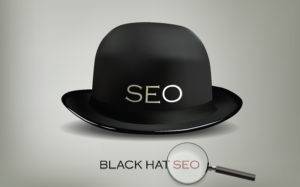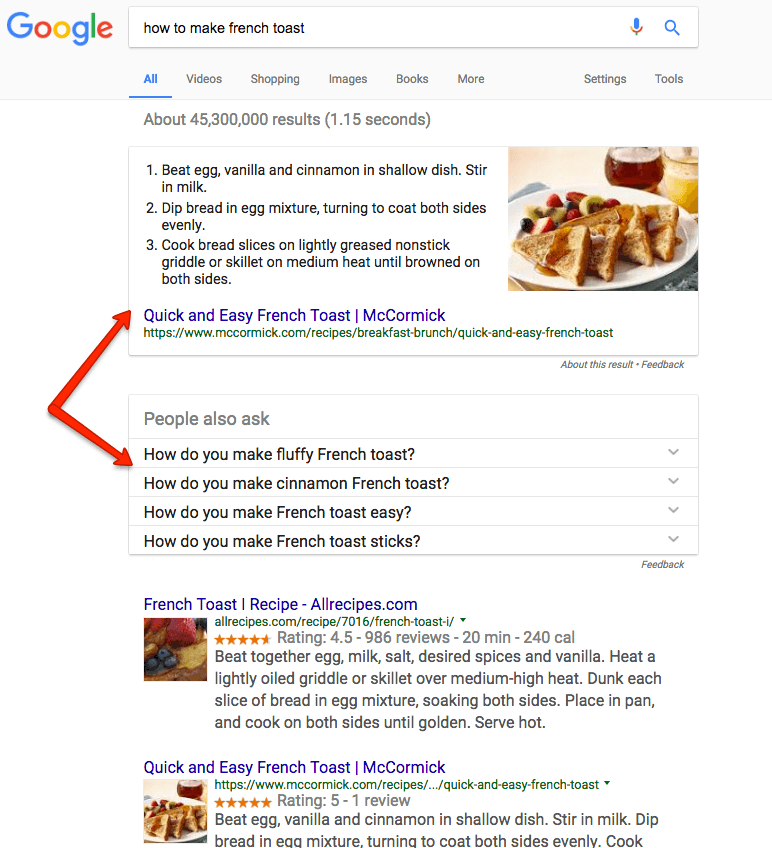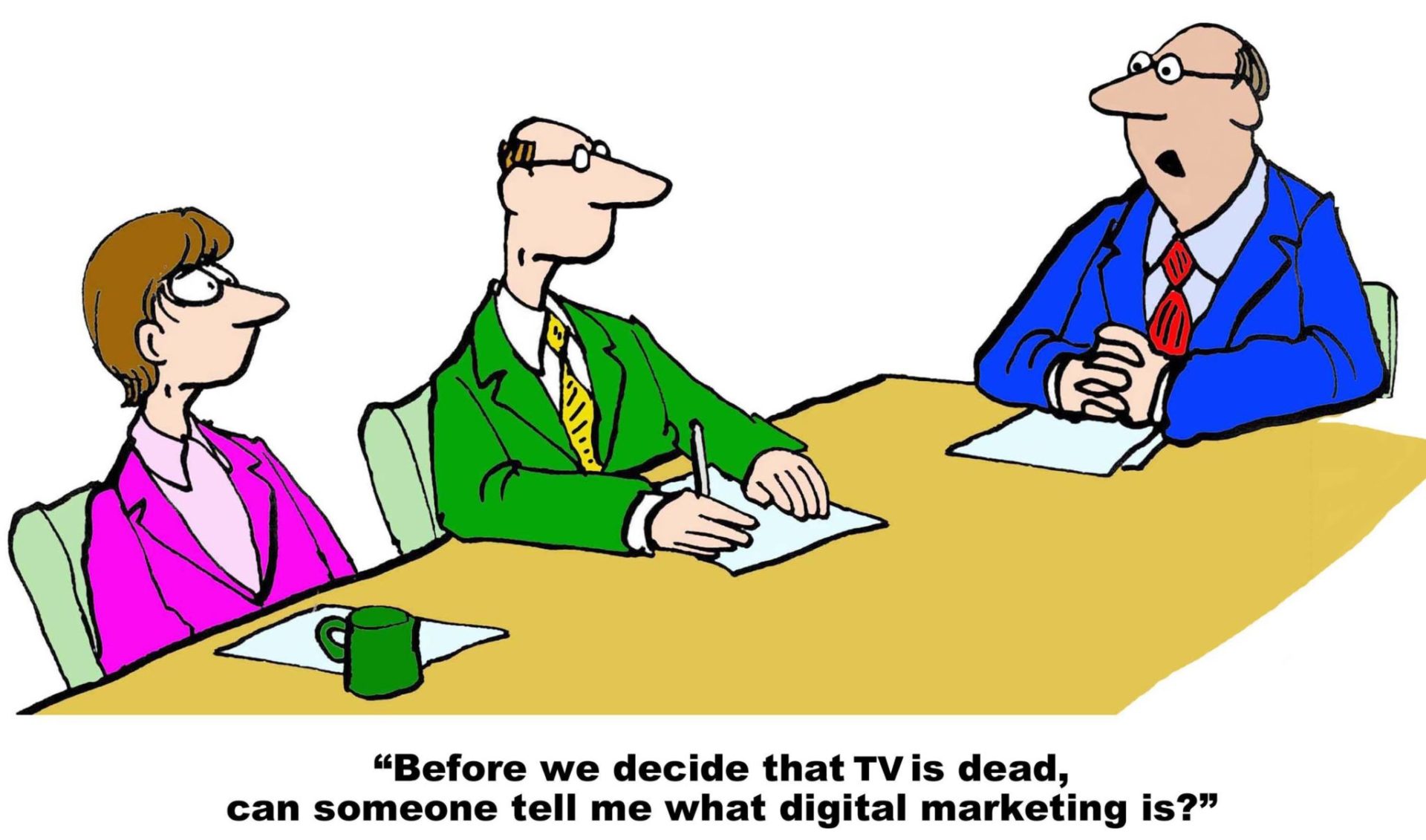The Past, Present and Future of SEO
By Lauretta Shokler | Published April 6, 2017

I love to read about SEO, A LOT! I read a number of blogs, attend conferences, study patents, and do just about anything else I can do to keep up with the world of SEO and digital marketing. Through the years working as an in-house SEO and at multiple agencies, I have found that people outside the digital marketing industry just don’t understand SEO. Many have picked up tips and strategies here and there, but because of the amount of misinformation that is spread by practitioners who find some trick that works for their website (often temporarily) and a lack of official information being shared by the search engines themselves, we have found ourselves in a murky world of often unrealistic expectations held by businesses looking for SEO to make them rich.
At times it’s been disheartening to see the wasted money, the lack of trust this has created, and the perpetuation of really bad information. I often feel like the doctor who has to break the bad news to her patient that his relentless cycle of SEO binging and purging has left him in a bad situation. I still believe, however, that all is not lost. With some basic understanding of how we got here, what can be done today, and where all this might be heading, your business doesn’t have to be a casualty of this chaos.
“Know from whence you came. If you know whence you came, there are absolutely no limitations to where you can go.” ~James Baldwin
History of SEO
How this all started
SEO started innocently enough. After Tim Berners-Lee (the guy who invented the World Wide Web – sorry Al Gore) showed the world a better way to catalog and connect information, we quickly realized that the information would overwhelm us unless we could organize it somehow. We needed a way to index the various web pages and online inventory. Yahoo, Alta Vista, and a few others jumped in early creating hierarchical directories, but the deluge kept coming.
That’s when a couple of Stanford college students named Larry Page and Sergey Brin took their thesis topic, which was largely focused on academic citation research, and turned it into a practical application for the ever-expanding information that was the World Wide Web. Based on the premise that the more sites linking to a specific web page, the more important the page might be, Google was born.

SEO Gunslingers in the Digital World
Needless to say, a tool like Google, the brainchild of a math prodigy and talented engineering PhD candidate working together at a prestigious University wasn’t likely to be rudimentary. On the surface, it was simple enough. Type in a search and get results ranked by how many other sites link to them. That’s pretty basic. But when you think about the recursive nature of the link graph they were mapping, you quickly realize that you not only have to count a particular page’s links, you also have to count the links pointing to the page that is linking to the original page, and so on, and so on. The math gets complicated pretty fast, but they made it work.
Online content publishers recognized the value of ranking well because Google was serving up an opportunity for even the little guy to get in on the ground floor. The best part was that there weren’t a lot of rules…YET, so the technically minded and the obsessive pattern finders rapidly discovered a number of tactical ways to help those publishers get a bigger slice of the pie.
The early SEO gunslingers battled it out in the nearly lawless wild wild west of the Internet in this zero-sum game of win or lose. They honed their skills; they brandished their weapons and they mastered the art of manipulating a computer algorithm that was not designed to account for the ingenuity of human competitiveness.


Then, The Bad Guys Show Up
As is true with all human events where fortunes are made and lost, inevitably the really bad guys show up. The world of SEO was soon filled with spammers, technical manipulators, and hucksters who had learned to bend the algorithm to their will. They are called Black Hat SEOs. The most interesting aspect of their craft was that the resource they were manipulating (the Internet) was also the resource they used to spread their knowledge of black hat tactics far and wide.
Ultimately, this ego strutting may have led to their downfall, because Google and the other search engine results became infected with results that ranked purely because someone had figured out how to stuff keywords, spin content, and mass-build links. The search engines, however, didn’t stand by idly. They had a vested interest in serving their clients (searchers) quality results, so respond they did. The cat and mouse game that followed is still a work in progress to this day, but the search engines are showing signs of winning the war.
Current State of SEO

Your House & the Big Bad Wolf
When you think about the current state of SEO, try to think of your online presence as a house. Now build your house carefully. Everybody remembers the story of the 3 little pigs where each pig chooses a different material to build his house to keep him safe from the big bad wolf. Well, the same is true today for website owners. You can build your house of straw (quick, cheap and risky) and the big bad wolf of search engine penalties will show up and blow your house in. Most black hat tactics today will lead to lower rankings over time, and sometimes very quickly. If you are willing to throw away your site when that happens, then build that house of straw, but most businesses expect to be around longer than it takes the computer algorithms to hunt down their indiscretions.
Many website owners choose to build their house of sticks: they put up clean but thin websites with basic SEO, often without in-depth research or cohesive strategy. For budgetary or other business reasons, they’ve trusted this work to 3rd parties who don’t specialize in SEO – web designers, or the ever popular “guy’s cousin who does freelance work.” And most critically, they have no long-term play. The walk away hoping that a basic effort will get the job done. This is certainly a safer approach than the pick-up and leave strategy of the straw pig, but still wrought with potential problems. Website owners go this path to hurry along the natural process of ranking over time, or to hedge on the costly investment of truly comprehensive SEO. Either way, the likes of Google can still show up and blow this house down as well.
Many factors have forced significant changes in the world of SEO over the years:
- Changes in technology
- Search engine commitment to improve their products and bottom lines
- Demand from the public for more privacy and security
- The desire for more personalized search results
- A world full of mobile and other devices accessing the Internet
- The impact of spammers and SEO manipulators
Today most of the tricks are out of the bag, and the world has demanded better, so businesses and other website owners find themselves facing even more time-consuming and expensive efforts to get the same result. They have to build a house of bricks. Of course, this approach isn’t without its downfalls. Unique, high-quality useful content is slow and difficult to produce. Natural link-building campaigns can take a very long time to make a difference and a lot of work to do. Cleaning up a technical mess of a website that can’t be crawled and indexed properly can be an expensive and painful process. Often the whole process is beyond the time and budget resources of many small to mid-sized businesses even if they aware of what needs to be done.
Time to Get Real!
This perfect storm of circumstances has led us to where we are today. SEO keeps getting more expensive to do all while providing a smaller payoff. But make no mistake: SEO is still worth doing for most established businesses. Website owners just have to keep one ear to the future so they don’t get caught in the next round of innovations and changes.
For example. Search engines are usurping more content from web publishers and putting it in their own result pages. How would you feel if your content was used to produce this Google rich snippet?

Good for you for earning that spot, but did it really help bring people to your site and further your brand? Maybe, but maybe not. In what way will Google repurpose your content next?
Your competitors, almost all of them, are onto the game and out there pushing to win the #1 spot, too. Most of the low-hanging fruit in SEO now is long-tail (very specific searches), which can be a great investment, but it’s like going from catching fish with a net to catching fish with a pole. More than any other strategy, it’s time to get real!
You have to be what you are. No longer will a sneaky trick, a quick-fix tactic or a bot (or low-wage army of people) generating spam get you much except pain. The days of gimmicky $200 per month SEO services will soon be gone with the wind, and thank goodness. It was a race to the bottom anyway and not just for pricing services, but the quality of information available to the public as well.
Certainly some remnants of that old “black magic” still work today, but it’s only a matter of time before those houses get blown down. In the early days of marketing, filled with print, TV, and radio, media channels had editorial discretion, and utilities like Google, Bing and the other search engines should be no different. The products, services, businesses and information sources they surface in their results pages need to meet their searchers’ needs, or they too will find themselves on the losing end of the public’s trust. That means for the vast majority of businesses, it’s time to stop losing sleep over algorithm penalties and flash-in-the-pan tactics, and start building something real, something that matters, something that will stand the test of time.

SEO is not Dead
The most interesting and optimistic part of all this is that SEO is not dead. Far from it! The old school ways of doing it are dying out, but the future may provide even more opportunity than the past. The real gnashing of the teeth over all this change isn’t coming from Google, big businesses, or even those holding the first place ranking for a popular search keyword. No, they have all moved on to the next strategy. The challenge is for people like me who do this for a living and now have to think in entirely new ways, and the small to mid-sized businesses/site owners who are just warming up to the table only to learn that the halcyon days of quick results and easy tactics have already passed them by.
SEO of Tomorrow

Scary Smart Search Engines
So where should you be investing time in SEO today? Right now for small to mid-sized businesses, a clean site build (or technical SEO audit), well-written and detailed content, well-planned internal linking structures and a professional review and update of your page titles, meta descriptions, headers, image meta, and schema markup are all good places to start. Businesses on a budget who want to do some of this themselves can setup a blog and post to that on topical issues related to their industry or business. For businesses in physical locations, they can set up local listings and submit their website to relevant quality directories. Consider a yearly or every 2-year site audit to make sure your site stays crawlable and indexable, and perhaps more often if the site is updated frequently. Certainly much more can be done, but these actions will lay the correct foundation for your website now.
While you are focusing on the fundamentals of SEO today, it’s important to keep your eyes to the future when building a business because the world of search is about to get incredibly interesting. Search engines are getting smart. I mean really smart! They process language semantically, they catalog more information than any other entity in the history of mankind, and they are learning – genuinely learning from our behavior, from patterns in the information we don’t see, and from the collective knowledge of those who teach them. And those who teach them? Well… they are often the best and brightest of us as it is.
Search Engines Everywhere

Remember your childhood View-Master? Very soon the VR headset you just received as a gift last year will be as quaint as your childhood View-Master. Search is the same way. It will no longer be a stand-alone activity that someone does just to find an answer. It will be integrated into your home, vehicle, clothing, environment, and possibly even your movement. We already speak commands to sultry-voiced cylinders and shiny objects in our hands. Soon your refrigerator will be making your grocery list and your car will communicate with the traffic signs. Search will become intuitive and contextual. It will already know where you are (no more searching for the “closest dry cleaner plano”), what you like, who you are associated with, what you were looking for earlier, what you need, and what might be on your calendar that would influence its response. Oh wait, surprise! They already do all that for anyone who likes to be on the cutting edge of technology. It’s coming soon for the rest of us too.
Going forward, the entire concept of “search” will likely become seamless, unencumbered, and for what’s at stake most for businesses, very very personalized. Search engines will not likely be serving up a list of possible options for the searcher to choose from, but rather trained and self-taught to serve up the best option for that day, that person, that place, and that request. The complexities of how a place of business could become that one response to that one thought or query in whatever format it comes in and to whatever media that receives it, are still a bit unknown. One likely challenge in all that though is the methods to achieve that result aren’t going to scale in an efficient fashion or be as simple as implementing as a new page title.

Return of Mad Men
The most interesting part might be how these changes have the potential to take us backward in the world of advertising. In the golden age of advertising, ads were the result of creativity… and pretty much nothing else. As technology emerged, the process became more formulaic, more mathematical, more about being first in line rather than clever or influential. The coders and data analysts ruled the process. I know, I’ve been one of them. The creatives were still around, but they were busy supporting an archaic print industry and creating websites. Advertising, essentially, moved to the STEM program and out of the art department. That may all be about to change though.
The technology of search mediums and algorithms are teaching themselves based on our behavior and not the prowess of a coder or analytics expert. Don’t get me wrong. Those skilled professionals will still have a place in the ecosystem, but it will be different than the days of SEO past. The real power going forward in the world of online marketing, and I use this term online loosely because what it means may be online may be very different soon, will be in the purely human endeavors of creativity, influence, and culture. Welcome back Don Draper. Welcome back.
SEO is not a dark art or a mystery. It’s like any other activity you use to promote your business. It takes time, effort, creatively and in the end, you get out of it what you put into it. The search engines, your clients and you – the website owner – may have different goals and interests, but ultimately everyone is served best when those goals are aligned, and that is the future you should be looking for.
If you are interested in working with an agency that lives, breathes and eats SEO. If you want to speak with someone who can help you know what matters and what doesn’t. If you want to partner with someone who not only knows the tools of the trade today but is also watching tomorrow’s marketing world, then contact the experts at Osky Blue. We understand search. Contact us at (866) 675-9411.











